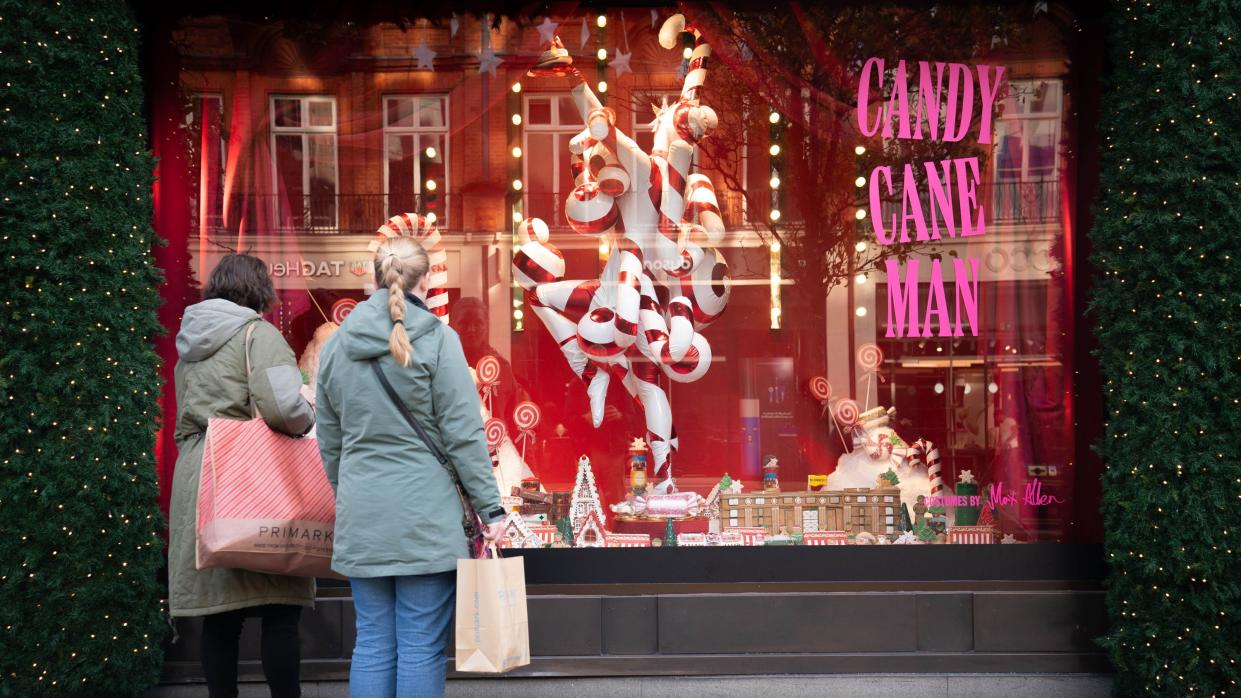Cautious consumers delay Christmas spending

Consumers appear to be sticking to plans for a budget Christmas this year with retail spending remaining weak despite Black Friday, figures show.
Total UK retail sales increased by just 2.7% in November, a significant weakening on last November’s 4.2% uplift despite a push from retailers around Black Friday deals, according to the British Retail Consortium (BRC)-KPMG Retail Sales Monitor.
Furthermore, the figures are not adjusted for inflation, masking a likely drop in volumes once higher prices are taken into account.
Food and drink, health, personal care and beauty products continued to drive growth, while jewellery and watches saw the biggest decline in sales on the high street, suggesting consumers are abandoning expensive presents in favour of more budget-friendly gifting.
BRC chief executive Helen Dickinson said: “Black Friday began earlier this year as many retailers tried to give sales a much-needed boost in November.
“While this had the desired effect initially, the momentum failed to hold throughout the month, as many households held back on Christmas spending.
“Retailers are banking on a last-minute flurry of festive frivolity in December and will continue working hard to deliver an affordable Christmas for customers so everyone can enjoy some Christmas cheer.
“Looking ahead to 2024, retailers will have to shoulder many new cost pressures, including a rise to business rates, as well as costs from other new regulations.
“These combined with the biggest rise on record to the National Living Wage will mean retailers will have less capital to invest in lowering prices for their customers.”
Paul Martin, UK head of retail at KPMG, said: “With less than a month to go and sales growth limping along, the cost-of-living crisis has taken its toll on Christmas spending for many households, and the continued economic conditions are testing consumer resilience.
“With two of the three months of the crucial golden quarter seeing sales growth below 3%, it has already been a weak Christmas trading period.”
Mr Martin added: “Any excess stock not sold before Christmas could be further reduced leading to big January sales, and potentially having an even greater impact on already tight margins.
“As we look to the first few months of 2024, we can expect the challenges to continue which could lead to further casualties in the sector, particularly pure online players facing more than 28 months of consecutive sales decline.”
In separate figures from Barclays, consumer card spending grew 2.9% year-on-year in November – just up on October’s 2.6% – as confidence in spending on non-essential items reached its highest level since April.
Spending on essential items was down on October’s 3.9% growth to 3.3% as falling petrol and diesel prices affected fuel spending, down 10.9%.
Growth at supermarkets was also lower month-on-month, down to 5% from 5.2%, as food inflation eased and the majority of shoppers (67%) sought ways to cut their grocery bills.
Jack Meaning, chief UK economist at Barclays, said: “This data suggests consumers are continuing to spend more but get less for their money, as spending growth remains below inflation.
“However, the gap is narrowing as the rate of price increases slows, and we expect it to narrow further in the coming months.
“It’s reassuring to see that some of the previous weakness in spending was due to unseasonal weather, as shoppers go out and finally buy that new winter coat and get in the Christmas spirit.
“But the key question for the UK is what happens after the holiday period. It will take more than a festive bounce to keep consumers spending in 2024.”

 Yahoo News
Yahoo News 
